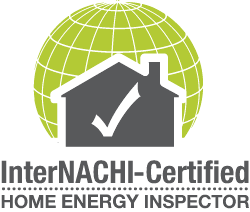One of the significant steps you take in your life is buying a house that you can call home. The process starts with you listing down the properties that meet your wants, needs, and priorities. Without a doubt, one of such priorities is a safe home that can be ensured by a thorough Home Inspection in Detroit, MI.
These days, home inspection reports guide homebuyers, telling them about the house’s flaws and issues. Well, if your question is how home inspection ensures the safety of your house, then this is what you will read forward.
Ensuring safety through home inspections
The primary purpose of home inspections is to provide complete transparency to the buyer and seller about the safety or risks of the house. Home inspection involves a certified home inspector who looks for potential issues and damages in various areas of your desired home. They tend to thoroughly examine the house’s physical structure to ensure it is safe for you to live in. The first thing an inspector checks is the foundational structure, while later moving forward to other areas of the house, such as roofing, heating and ventilation system, plumbing, etc. Home inspection services usually cover the following areas to ensure the house’s safety. Let’s discuss all these in detail ahead.
Foundation
A vital aspect of the house inspection process is ensuring that the house’s structure is free of damage, such as mold or not disintegrating due to termite infestations or general deterioration over time deterioration. The inspector’s primary concern is to ensure the foundation’s integrity and see that it is in stable condition. Most home inspectors, while assessing a home’s foundation, start with the home’s outside area and then work their way in. The signs convincing a home inspector that the house’s foundation is faulty are a chimney leaning away from the home, cracked steps leading up to the house, a sunken porch, etc. Whereas, inside the home, if the doors and windows are difficult to close, the ceiling
or drywall are considered to have considerable cracks, which can be an indicator for foundation issues. Furthermore, when inspecting the foundational problems of the house, a home inspector also assesses the framing of a house and other structural elements that ensure that they are intact. Ignoring these issues can lead to the condition worsening and significant repairs or the whole structure collapsing. Thus, a home inspection saves both your money and your family from calamity.
Electrical
Inspecting the house’s electrical system involves checking the wires outside the home that enter the electrical panel first. They will also ensure that any interference is not happening with the wiring of the house; in many cases, trees and bushes usually interfere with the wiring of a house. Whereas, in older homes, home inspectors inspect the visible wires and make sure that insulation covers those without a metal showing. Furthermore, in the case of newer homes, the electrical wiring is all underground, so the inspector will open the electrical panel to ensure that all the wires are connected correctly; most of the time, the wires are connected with the fuses instead of the circuit breaker. Most inspectors also come forward to check that the house uses copper wiring instead of aluminum wiring and that none of the wires are loose, which can later result in a short circuit. According to the National Fire Protection Association (NFPA), malfunctioning electrical work causes around 51.000 fires and is the second leading cause of house fires in the US. A Detroit home inspection, ensures your home’s electrical systems are up to date and in optimal condition and save you from catastrophe.
Heating, Ventilation & Air Conditioning (HVAC) System
A home inspector conducts a thorough visual inspection as a first step while inspecting a house’s HVAC system; this visual inspection will then ensure the proper functioning of the thermostat, air conditioner, ducts, heat pump, furnace, and thermostat. Further looking for the signs of carbon monoxide or gas leaks gives an assurance that the air inside the house will not be harmful to breathe in and will not lead to further lung issues. Whereas after the visual examination, the house inspector will check the systems manually to ensure the house’s working condition. Typically home inspectors only check heating in the winter, and air conditioning in the summer as testing heating during summer and air conditioning during winter can lead to system damage giving inaccurate readings later.
Attic
A home inspector, will check the insulation’s condition in the attic; this will then determine the house’s energy efficiency. Later, they will also check the ventilation of the attic since if it is poorly ventilated, it can result in excess moisture and mold growth. They will also be looking for damaged insulation, water
stains, and any other signs that can be a caution for water damage. A home inspector will also look for scorched wood or soot as these are the signs of fire damage. The interior of an attic will assist the home inspector in assessing the overall framing and roof of the house, which will further help in determining if the roof of the house is strong enough to protect itself against the high winds in bad weather conditions.
Plumbing
For the house’s plumbing, a home inspector will check the showers, sinks, toilets, bathtubs, pipes, and other areas of the house from where the water passes through. They will also test the filler mechanism, flappers, and levels in all toilets to ensure that they work properly. They will also further check for the pipes and hydrants outside of the house for leaks to ensure proper anti-freeze protection. Lastly, they will check the water heaters, the temperature, pressure relief valves, and pipes. Poor plumbing or plumbing systems affected by natural disasters such as earthquakes and seismic waves can go unnoticed and cause thousands of dollars in damage to homeowners.
Basement
With the other parts of the house, an inspector will also check for signs of water damage in the basement. A musty odor, mold growth, mildew, damaged walls, and uneven flowing are the common signs of water damage. The inspector will also go with the areas around the basement windows and doors to ensure that water can’t enter. Mold exposure due to exposure due to skin contact, ingestion or inhalation can cause severe allergic reactions, infections, toxic effects, and in some cases, even death.
If you fear you or your family may be at risk due to any of the factors discussed above, don’t waste time and schedule a home inspection today. Having insight and guidance from experienced home inspectors in Detroit, MI, ensures you are safe and saves you thousands in repair. Blessed Assurance Home Inspection provides unbiased home inspection services for buyers and sellers, where our inspectors perform a thorough, diligent home inspection that ensures that nothing is missed or skipped. Allow our highly experienced and diligent inspectors to perform a thorough inspection of your home to give you peace of mind.









